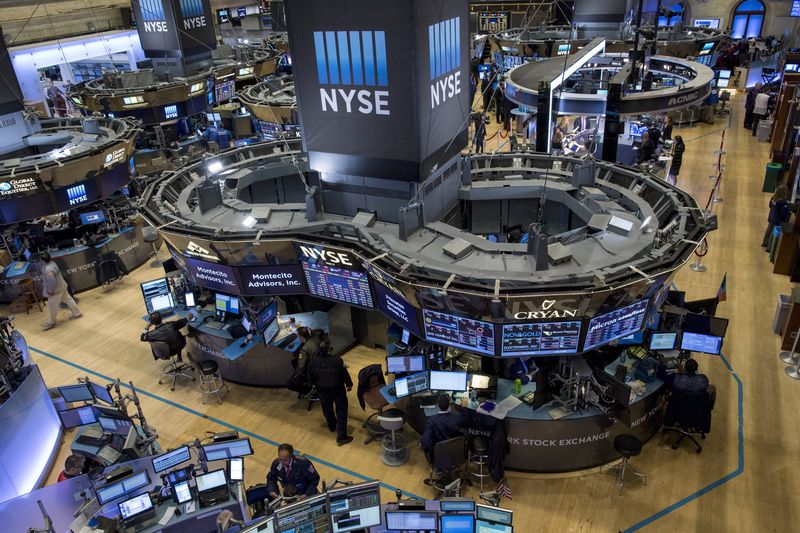
© Reuters.
By Geoffrey Smith
Investing.com — The Labor Department’s monthly look at job vacancies will cast light on the tension between record openings and weak job creation. The Treasury will auction 10-year notes against a backdrop of rising inflation fears. China’s car sales slumped in September and the Bank of England gets more reasons to raise interest rates. Stocks are inching lower in the calm before the third-quarter earnings storm and the U.S. updates on its estimates for supply and demand in world agricultural markets. Here’s what you need to know in financial markets on Tuesday, 12th October.
1. JOLTs survey and Fed speakers
Fresh data will shed light on the puzzle that is the U.S. labor market, with the Labor Department’s monthly Job Openings and Labor Turnover survey (JOLTs) for August.
Vacancies are expected to have dipped after surging to nearly 11 million earlier in the spring and summer, but the sectoral and geographical breakdown will likely shed light on why the economy only ended up adding 194,000 jobs last month, its weakest performance so far this year.
There’s also the monthly outlook from Redbook Research, as well as speeches by Federal Reserve vice-chairman Richard Clarida at 11:15 AM ET and Atlanta Fed President Raphael Bostic at 12:30 PM.
2. China car sales slump; real estate contagion spreads
New data showed Chinese car sales slumping 17% on the year in September, their worst decline in a year. For the third quarter as a whole, they were down 13% from a year earlier.
Elsewhere in China, a growing number of real estate developers are starting to hit the wall, missing interest and principal payments either partly or in full as the problems of China Evergrande (OTC:EGRNY) make it harder for them to refinance.
In addition to Evergrande and Fantasia, Sinic has said it won’t meet a combined interest and payment deadline by Oct. 18, while Xinyuan said it can only repay 5% of its notes due on Friday. Modern Land, meanwhile, has asked for a three-month extension on debts falling due before the end of the month. Yields as measured by Bloomberg’s China junk bond index surged to a fresh high of just under 18%.
3. Stocks inch lower; Treasury 10-year note sale eyed
U.S. stock markets are set to extend their poor start to the week, a day before JPMorgan (NYSE:JPM) informally opens a third-quarter earnings season that may substantiate fears of earnings growth having peaked for the present.
By 6:20 AM ET (1020 GMT), Dow Jones futures were down 56 points, or 0.2%, while S&P 500 futures were down 0.1% and Nasdaq 100 futures were up less than 0.1%.
There will be a fresh test of sentiment in the bond market at 1 PM ET with the auction of 10-year Treasury notes, the first bond sales since lawmakers declared a temporary truce in the war over the debt ceiling.
Stocks likely to be in focus later include Chevron (NYSE:CVX), which posted some details about its ‘ambition’ to reach net zero carbon emissions late on Monday, and construction supplies group Fastenal (NASDAQ:FAST), which reports quarterly earnings.
4. Clouds on German horizon; wages, jobs surge in U.K.
Europe’s economy continues to throw out mixed signals: Germany’s ZEW index, the first of the big sentiment indices to be published each month, fell to its lowest since February 2020 in September, with a larger-than-expected drop to 22.3 from 26.5 in August. That follows the triple whammy from Europe’s largest economy last week, which included falling orders, output and exports.
The U.K. meanwhile issued a thoroughly decent set of labor market statistics, employment rising by 235,000 in the three months through August to stand above its pre-pandemic level for the first time.
Average earnings excluding bonuses rose 6.0%. Although the Office for National Statistics said they are distorted by base effects, they still illustrate the pressures referred to by Bank of England officials who now seem set to raise interest rates before the end of the year.
5. Oil consolidates near highs; WASDE report due
Crude oil prices consolidated close to seven-year highs overnight, with no sign of the energy crisis in China and Europe relenting, and plenty of demand for liquid fuels coming from the reopening of economies across southeast Asia and Australasia in particular. China said it will allow some wholesale electricity prices to rise again to balance supply and demand, while India lifted restrictions on airlines’ flying capacity.
By 6:30 AM ET, U.S. crude futures were down less than 0.1% at $80.47 a barrel, while Brent futures were down by a similar amount at $83.56 a barrel.
The day’s highlight for commodity traders comes at 12 PM with the publication of the World Agricultural Supply and Demand Estimates report from the U.S. government. That comes as Cotton futures hit 10-year highs.
Source: Investing.com



























